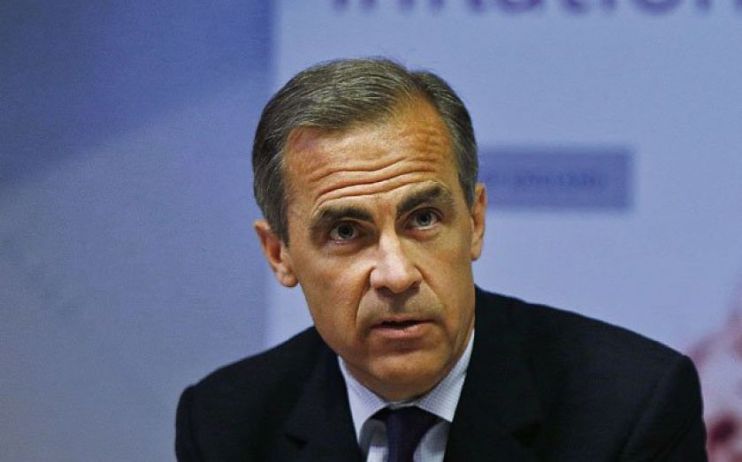Bank of England: Brexit deal and trade wars will limit UK growth

Boris Johnson’s Brexit deal and global trade tensions are likely to hold back growth in the UK economy over the next three years, the Bank of England has said.
British national income will be one per cent lower by 2022 than originally thought, the Bank predicted today in its quarterly deep-dive into the economy.
Read more: Brexit brings uncertainty, but a Corbyn government is a greater threat
Read more: McDonnell and Javid reveal clashing visions on fiscal rules
Most of that lost output is due to “weaker global growth, driven by trade protectionism” as well as higher asset prices, such as the recent rise in the pound, the BoE said.
However, disruption due to Britain moving to new trade arrangements as it leaves the EU under the PM’s Brexit deal is another factor.
The Bank of England’s latest report is the first time it has produced an analysis of a specific Brexit deal. With Britain locked in General Election mode, the downgrading of growth forecasts under the government’s Brexit agreement is likely to prove a controversial move.
Read more: Revealed: How London house prices have changed since the last election
The Prime Minister has repeatedly said that leaving the EU with the deal he struck with the bloc in October would boost the economy, which has seen business investment drop off in 2019. Today’s BoE report predicts no medium-term benefit however.
Brexit uncertainty lifts
In better news for the PM, the Bank said: “The Withdrawal Agreement and extension of the UK’s membership of the EU appears to have reduced Brexit-related uncertainty.” It said some of the gloom over business and households was likely to lift.
The BoE added that chancellor Sajid Javid turning on the spending taps in September – with billions for hospitals, schools and the police – would likely provide a 0.4 per cent boost to the economy over three years.
Yet it made clear that over the three years to 2022, growth would be one per cent below the amount the Bank predicted in August. The BoE now thinks growth will pick up to 1.8 per cent in 2021 and two per cent by 2022, although it will be just 1.4 per cent in 2019 and 1.2 per cent in 2020.
Read more: IMF warns that a no-deal Brexit remains the biggest threat to Europe
The predictions came as the Bank of England voted seven to two to leave interest rates on hold at 0.75 per cent.
Monetary policy committee (MPC) members Jonathan Haskel and Michael Saunders both voted for a cut, arguing that “core inflation was subdued” and that “persistent Brexit uncertainty” merited action.
It was the first time anyone on the MPC had voted for a cut since July 2016. The Bank said that if “global growth fails to stabilise or if Brexit uncertainties remain entrenched, monetary policy may need to reinforce the expected recovery in UK GDP and inflation”.
Read more: Exclusive: Labour embroiled in parachute row over Cities candidate selection
Yet it said that if these risks “do not materialise and the economy recovers broadly in line with the MPC’s latest projections, some modest tightening of policy, at a gradual pace and to a limited extent, may be needed to maintain inflation sustainably at the target”.